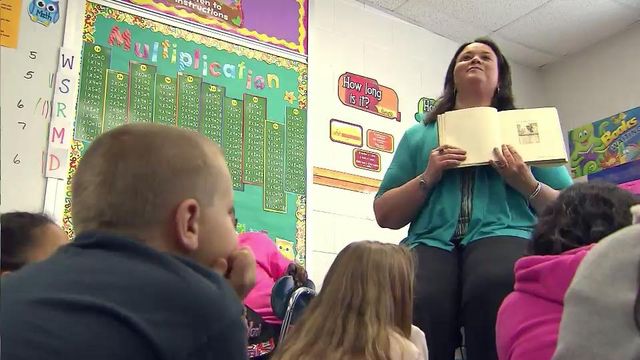House budget takes quick partisan turn
The House Finance Committee voted Tuesday morning to approve the proposed spending plan for 2016-17 but not without some notably sharp partisan sparring over the wisdom of additional tax cuts.
Posted — UpdatedUnder the proposal, the deduction would increase by the same $250 or $500 increment for the three following tax years. By 2020, the zero tax bracket for a married couple filing jointly would stand at $17,500. For an individual, it would be at $8,500.
"Seventy-five percent of taxpayers use the standard deduction as opposed to itemized, and those folks are more the middle-income and low-income taxpayer," said Rep. Susan Martin, R-Wilson. "That will translate to about $115 back in their pocket."
The estimated cost for the next fiscal year, which includes only half of tax year 2017, would be $25 million, Martin said. In 2018, that cost would increase to $77 million, then $133 million in 2019 and $193 million by 2020.
Another major change in the budget would be the repeal of the excise tax on mill and manufacturing machinery, currently at 1 percent, capped at $80 per item purchased. Martin said North Carolina is one of only eight states and the District of Columbia that still tax manufacturing equipment. None of the states surrounding North Carolina tax it.
The exemption would also apply to secondary metal recyclers and precious metal processors, companies engaged in repair and maintenance at ports facilities, metal fabricators and concrete mixer trucks.
"As you know, manufacturing is a key industry. It has one of the largest multiplier effects," Martin said. "It’s certainly an area where we want to be more competitive in North Carolina."
Rep. Paul Luebke, D-Durham, questioned the wisdom of "another tax cut" that would lessen the amount of recurring revenue coming into the state budget.
"Given the interest all of us have in increasing teacher salaries, why would we as a body want to reduce taxes when we have such a serious need for schoolteachers’ salaries?" Luebke asked Martin.
Referring to the tax cuts of the past three years, Martin replied, "Each time that we’ve done that, we’ve improved from having a deficit to a surplus."
"We’re now at a point where we can reinvest," she said. "It’s a balanced approach."
"There’s a lot of debate over whether the tax cuts have had anything to do with the recovery in our state," Luebke responded.
"Well, that’s my answer," Martin shot back.
Luebke ran an amendment to restore the Earned Income Tax Credit for low- and lower-middle-income workers, proposing to pay for it by reinstituting a 7.75 percent tax rate on income over $1 million.
The amendment failed, but not before spurring a heated partisan debate in the usually congenial committee.
"I appreciate the effort to demagogue and to penalize those that are able to raise the level of income that they make," Rep. David Lewis, R-Harnett, said to Luebke. "It’s certainly easy to attack those who make over $1 million. Those make for good talking points."
Rep. Mike Hager, R-Rutherford, suggested that the proposal to increase the top tax rate "might show up in an election somewhere."
"We’re the Finance Committee. We’re supposed to debate the issues before us and not be judgmental," protested Rep. Becky Carney, D-Mecklenburg. "I do hope we’re not trying to make this an election issue for everybody to run on."
"This is about keeping alive a campaign issue," answered Rep. Bill Brawley, R-Mecklenburg, "a bunch of rhetoric about who likes working poor and who doesn’t."
Brawley said he had worked with then-Rep. Deborah Ross in 2011 to preserve the EITC, which he said he supported, but because Democrats "made it a partisan issue" in 2012, the credit was allowed to expire.
"They broke their deal," Brawley said.
Rep. Graig Meyer, D-Orange, offered an unsuccessful amendment to reinstate the state tax on estates worth more than $5.4 million. He argued it would affect fewer than 100 families but would bring in $63 million in additional revenue.
Republicans called it an "anti-farmer amendment."
"This is one of the No. 1 issues here in North Carolina and nationally for farmers," said Rep. Nelson Dollar, R-Wake. "You can’t have these kind of estate taxes and pass on family farms. You just can’t do it."
The budget proposal then spent most of Tuesday in the House Appropriations Committee, where members were expected to tweak spending. The proposal is expected to be on the House floor for a vote by Thursday.
Related Topics
• Credits
Copyright 2024 by Capitol Broadcasting Company. All rights reserved. This material may not be published, broadcast, rewritten or redistributed.





